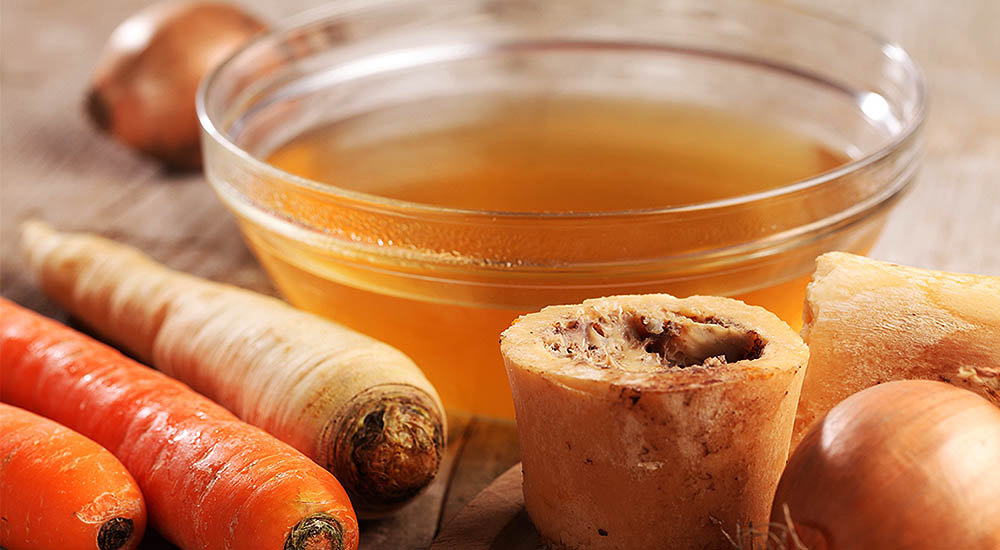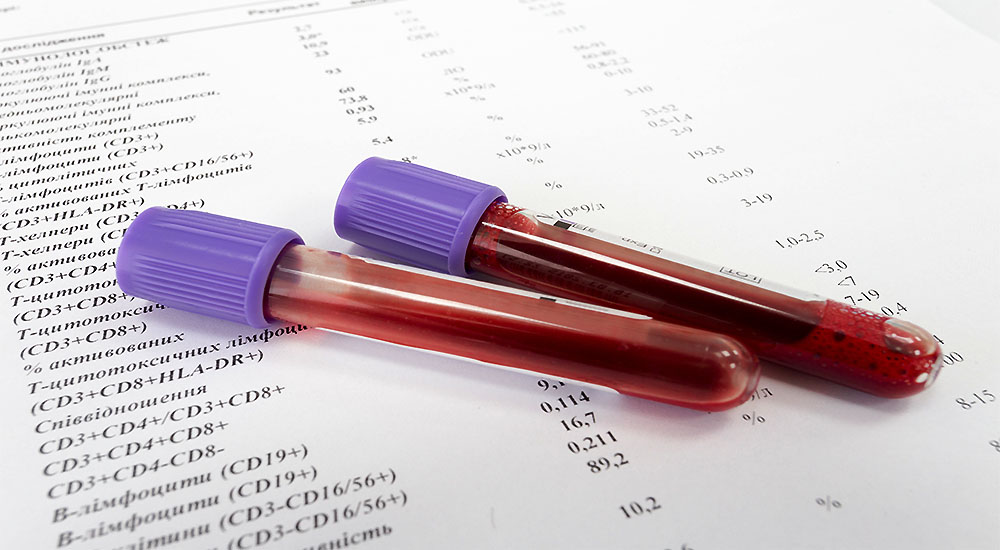Bone Broth and Collagen Powders – a Hidden Danger

Is the Bone Broth and Collagen Powder Hype Legit?
In the first part of this series, “What is Collagen? 4 Things You Must Know”, we reviewed some key protein facts and discussed the potential “real” reason we are deficient in collagen. Based on a deep dive into the research my proposed solution didn’t involve purchasing collagen supplements and in fact, the answer was easy and very inexpensive.
Hint: how much does an orange or a serving of broccoli cost?
In this second part of my series, we review the real dangers lurking behind collagen powders and bone broth.
How do you digest collagen or any protein?
Collagen is a protein and, like all protein, is made up of amino acids. When you ingest collagen, or any protein for that matter, your body’s digestive tract breaks it down into its component parts – individual amino acids or small strings of amino acids called peptides.
One could say an amino acid is an amino acid, but it may not be quite that simple. If all protein was processed the same by the human body, why is it that animal protein, in particular, is associated with increased levels of a hormone called IGF-1, a cancer causer, yet eating plant protein does not stimulate IGF-1, and is found to be protective against cancer. They’re both protein. They’re both composed of amino acids.
Obviously there’s more to it.
[Note: If you want to learn more about the cancer risk associated with meat check out this blog: “Processed Meat and Cancer Alert”]
Protein is a Building Block – but what is it Building?
Dr. Greger from nutritionfacts.org gave a nice analogy that’s easy to visualize when distinguishing how the body treats animal vs plant protein. If you wanted to build a huge Tinkertoy pyramid and someone gave you a big pile of little pyramids (these will be representing animal protein), you could quickly start stacking them together and build up your pyramid quickly.
However, if you wanted to build the same large pyramid and the only building blocks available to you were cube-shaped Tinkertoys (these will be representing plant protein), you could see that your building speed would be slowed down considerably. It would actually be a bother to undo the cubes and re-shape them and you probably wouldn’t be building very fast.
The influx of animal protein stimulates a great deal of IGF-1 production to “use up” the increase of readily accessible protein in your system. You are “of flesh”, you eat an animal “of flesh”. The similarly constituted proteins, animal to animal, akin to the pyramid-shaped Tinkertoys, allow a fast buildup of protein, and IGF-1 is called into action to use it up.
IGF-1 causes rapid cell division, a hallmark of cancer.
Is your choice of protein causing you to move toward or away from cancer?
Plant protein is protein, it’s a complete protein, but, and this is an important distinction, since it’s a plant and you are not, the amino acid constituents are different. Your liver is not stimulated to increase its production of IGF-1 in the presence of plant protein.
To reiterate: It has not only been confirmed that plant protein doesn’t cause in increase in IGF-1, but plant protein provides protection against cancer. There is an IGF binding protein (IGFBP) – yes our clever bodies know that IGF-1 is dangerous so we can make a “binding protein” that protects us against it. The binding protein is associated with reduced cancer risk and sure enough, it’s the plant eaters that demonstrate high levels of it.
Other than animal produced gelatin, also known as collagen, all protein, whether it’s derived from animals or plants, contains all nine essential amino acids and is therefore complete. Let me repeat that another way: Collagen is an incomplete protein because it’s missing an essential amino acid tryptophan. We discussed this in our first part of this series, “What is Collagen? 4 Things You Must Know”
So what differentiates them is not whether one is complete and the other is not, they both are complete, it’s simply the proportions of the various amino acids that is the distinguishing characteristic between plant and animal protein.
What does bone broth do for you?
You have likely heard about bone broth. It is touted as having the following benefits:
- Heals the gut
- Promotes healthy joints
- Improves your immune system
- Makes your skin glow
- Builds muscle quickly
- Detoxifies
- Boosts brain health
- Combats mental illness
- Improves sleep
- Protects the heart
That’s a long list. When I dug further, the reasons cited underlying all of the supposed benefits were just two:
- The bone broth contained collagen
- Bone broth was high in glycine, an amino acid.
We have discussed the true nature of collagen in our first article in this series, “What is Collagen? 4 Things You Must Know” and found it wanting. It’s simply a protein, an incomplete one at that, with the only documented, researched benefit revealed in our next chapter, “Does Collagen Help Rheumatoid Arthritis?”
Is there something special about glycine?
Foods high in glycine are not hard to find. We defined the difference between essential and non-essential amino acids in “What is Collagen? 4 Things You Must Know”, but to summarize, glycine is not essential and therefore you can manufacture it from other protein-containing foods you eat.
Glycine is readily found in animal sources of protein including dairy, meat, eggs, poultry, and fish. And if you prefer plant sources, glycine is readily there as well, in spinach, kale, cauliflower, cabbage, banana, and kiwi.
There’s nothing negative about glycine certainly, but it can be found readily in many easily gotten food sources.
Is there anything negative about bone broth?
Dr. Mercola points out that quality is a concern in collagen and bone broth products. He states that recent testing by the nonprofit Consumer Wellness Center revealed eight popular bone broth and collagen products to contain hazardous contaminants including antibiotics, prescription drug metabolites (breakdown products of drugs), steroids, insecticides, and parabens. All products were purchased from Amazon in 2017. The organization made it clear no companies were paid to be included or excluded from their tests.
He encourages people to ingest products that are 100% organic and/or certified grass-fed.
Does Organic bone broth make a difference?
When Dr. Greger published “Lead Contamination in Bone Broth” researchers found that broth made from chicken bones had 10 times the amount of lead as the broth made identically but without the chicken bones. The water was from the same source, etc.
When questioned what the results would be had they used organic, free-range chickens in their study? The authors replied: We DID only use bones from organic, free-range chickens. Uh oh…
Lead has adverse effects on nearly every organ in the human body. Symptoms include memory loss, constipation, impotence and depression.
The authors of the study concluded that the risk of lead contamination should be taken into consideration when recommending anyone to consume bone broth.
How did these innocent organic chickens get lead in their bones? Chickens can get exposed to lead in their environment and lead tends to build up in the bones of animals. This is why using those bones for broth can be causing a dangerous exposure to lead.
There is no such thing as a “safe” level of exposure to lead; it’s toxic and environmental exposure over which we have no control is already abundantly present, so to make the effort to make bone broth seems unnecessary in light of these findings.
Do you need help with your health?
We have the diagnostic and testing tools, the clinical experience, and a different medical approach to discovering the root cause of why you have the symptoms that are bothering you. As long as you are ready to make some dietary and lifestyle changes, we can help you. We will "hold your hand" through the changes, step by step, to make each step an easy one. We are located in Clearwater, FL, at 1000 S Ft Harrison, at the corner of Ft. Harrison Ave. and Magnolia St. There is plenty of parking space directly accessible from Ft Harrison. If it is not convenient for you to come to Root Cause Medical Clinic, we offer telehealth/telemedicine consultations to residents of certain states. Call us for details.
Contact us for a Consultation – Call 727-335-0400

Dr. Vikki Petersen DC. CCN
Founder of Root Cause Medical Clinic
Certified Functional Medicine Practitioner
Dr Vikki Petersen is a public speaker, author of two books, several eBooks and creates cutting edge content for her YouTube community. Dr Vikki is committed to bringing Root Cause Medicine and its unique approach to restoring health naturally to the world.
Ask a Doctor
Have a health concern you'd like to speak with a doctor about? Or just want clarity on a subject? Ask Us!
Featured Articles
Popular Stories
References:
Allen NE, et al. The Associations of Diet with Serum Insulin-like Growth Factor I and Its Main Binding Proteins in 292 Women Meat-Eaters, Vegetarians, and Vegans. Cancer Epidemiology Biomarkers & Prevention. 2002 Nov;11(11):1441-8.
J A Monro, et al. The risk of lead contamination in bone broth diets. Medical Hypotheses. 2013 Apr;80(4):389-90.


